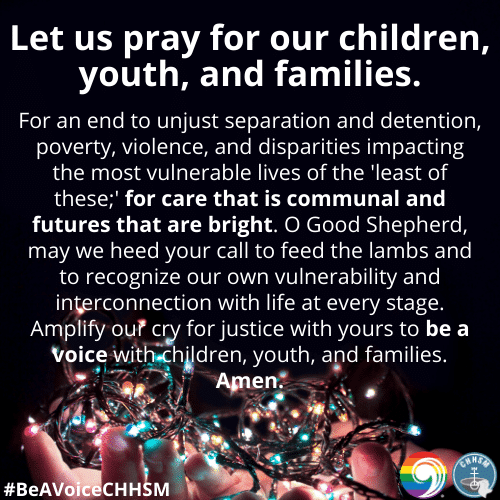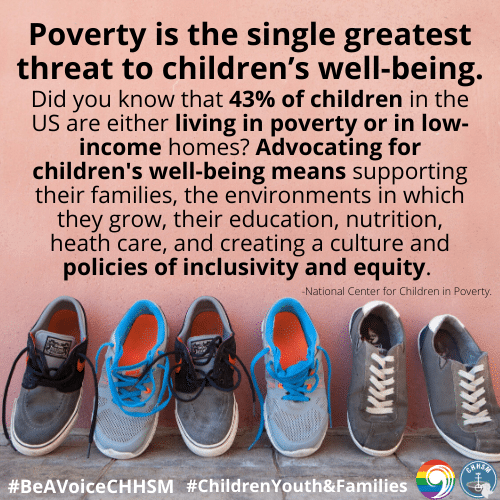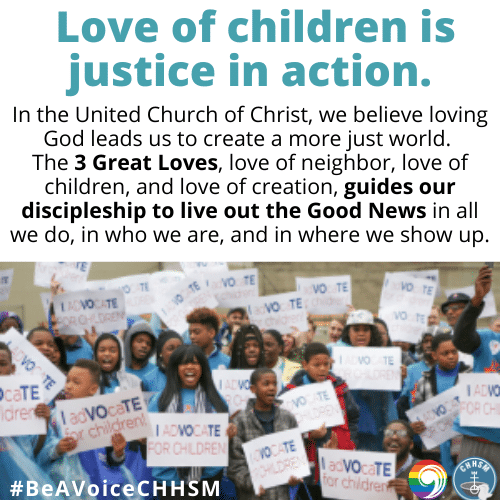CHHSM Advocacy Center
Vol. 4: Children, Youth, and Family Services
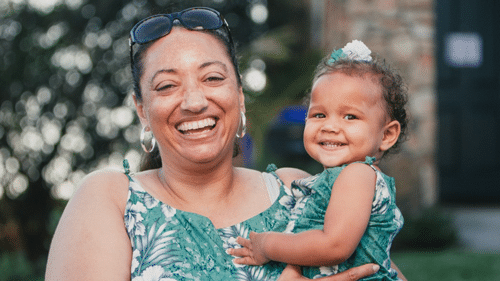
Lauren's Story
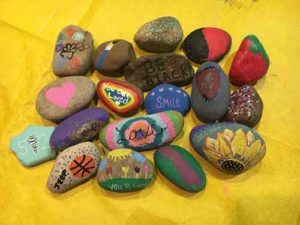
Bellewood and Brooklawn residents and volunteers made painted rocks to brighten up their gardens.
Ensuring the safety and well-being of vulnerable youth and their families is the mission of Bellewood & Brooklawn, a CHHSM organization in Kentucky with historical roots that date back more than 170 years. Bellewood & Brooklawn lives out its mission by providing therapeutic care through many services that include residential treatment, foster care, and other community-based services. Through a partnership with Seven Counties Services, a local community mental health agency that serves a seven-county region in the Louisville, Ky., area, a continuum of care can reach an entire family with needed treatment and services.Through Seven Counties Services, a community-based service called TAYLRD (Transition Age Youth Launching Realized Dreams) is designed especially for youth who have aged out of the foster care system. Recently, a therapist at TAYLRD met a 19-year-old girl named Lauren* who aged out of foster care last year. Lauren reported that she’d had more than 52 placements while growing up in foster care, and had chosen not to recommit to an independent living program at age 18, even though she had no family connections. She had completely lost faith that the system could help her. After leaving foster care, she spent several months staying at various shelters, living on the streets, and sleeping in a friend’s car.
In October 2019, Lauren had a change of heart and decided to go to the women’s campus of The Healing Place in Louisville, a nonprofit run by Seven Counties Services, that provides food, shelter, clothing, and recovery services to 700 men and women at no cost to the client. After a while, Lauren began to feel safer there than in traditional homeless shelters. She continued to access the array of services offered at TAYLRD during that time, including referrals for housing. In March 2020, she received the keys to her own transitional housing apartment!
As a nonprofit agency, Bellewood & Brooklawn’s outreach ministry component is essential. State and federal funding covers basic needs for clients but is not enough to provide the kind of life and unconditional love individuals deserve, especially during the healing process. “What’s engrained in the belief system of our organization and our employees is that we have a responsibility to serve people in our community no matter what stage of life they are in,” says Abby Drane, president & CEO of Seven Counties Services and Bellewood & Brooklawn. “This is our calling: to meet people where they are; and it’s why we will always intervene and provide help for people like Lauren, who may have nowhere else to turn in their community.” The church is a vital link in that care, Drane adds, “helping us extend beyond that intervention to improve someone’s life by providing another level of compassion and care that children, adults, and families need to feel whole again.”
To learn more about Seven Counties Services, visit www.sevencounties.org.
To learn more about Bellewood & Brooklawn, visit www.bellewoodandbrooklawn.org.
*The name of this individual has been changed to protect their identity.
Background Information
Often when discussing children, they are described as our “future.” Yet they are very much our present, and the realities of the past certainly impact them. Advocacy work for the rights and well-being of children speaks to this fact and views children holistically. Nurturing and improving the lives of children means supporting their families and the environments in which they grow; their education, nutrition, heath care; and creating a culture and policies of inclusivity and equity.
In the US, improving children’s lives through public policy began in the early 20thcentury, during the wake of the Civil War. Because of organizing led by several women’s groups, in 1912 the Children’s Bureau was created and became the first federal government office in the world to focus solely on the well-being of children. Their first initiative was to decrease infant mortality and was quite successful. Though the term “health equity” would not have been used at the time, their efforts to combat this issue used similar methods, such as improving public sanitation, access to pasteurized milk, education for mothers, and visiting nursing services. However, research showing the additional factors causing Black families to have higher rates of infant mortality, including lower wages for fathers and the mothers’ continuous employment, went unaddressed; and socio-economic disparities for communities of color continue to contribute to health disparities today.
In fact, poverty remains the single greatest threat to children’s well-being. According to the American Academy of Pediatrics, poverty has a profound effect on every aspect of life–development, chronic illness, infant mortality, injury, environmental exposure, nutrition, learning, mental health–and can lead to lifelong challenges. With nearly 15 million children–21% of all children in the US–living in families below the federal poverty line (and 43% when low-income families are included), ensuring child well-being is certainly an issue for our times. Moreover, as in the last century, most of these children’s families are working, but low wages, unstable employment, food deserts, and rising housing costs impede them from meeting their families’ needs.
This context is reflected in the inequities and adversities children and young adults face. Each year approximately 4.2 million youths and young adults experience homelessness, with 40% of this population identifying as LGBTQIA+; more than 11 million children live in food insecure households; 4 million families with children are exposed to high levels of lead; and gun violence is the second leading cause of death in American children and adolescents. Further, major differences in the quality of education young people receive continue to reflect racial inequalities, with predominantly white districts receiving $23 billion more in funding than districts predominantly serving students of color.
Current Context
All of these threats, and more, are now being exacerbated by the COVID-19 crisis–with unemployment soaring and the economy in freefall, children and youth are presented with scarcity and food and housing insecurity at an alarming rate. Children and youth are some of the most vulnerable and yet so often are not made a priority. Last year, the share of federal spending on children was at an all-time low. More than ever, we must advocate for a robust federal response to protect children, youth, and their families. Our patchwork of state and federal safety net programs are woefully underprepared; thus measures which need to be incorporated in the response moving forward include:
- Expanding access and eligibility to the Child Tax Credit and Earned Income Tax Credit.
Fully a third of those who would benefit from the CTC do not qualify for it because they don’t make enough money. Making the CTC fully refundable, expanding the amount of the credit, and not tying eligibility to earnings will help to improve the effectiveness of the program. - Expand cash payment eligibility, amount and frequency.
Right now, those with children only qualify for $500 per child through the CARES Act, which means that a single parent of two would get $2,200 while a married couple with no children would get $2,400. We know that the cost of caring for children is not half of the needs of an adult. We must advocate to ensure that all have access to the direct cash assistance and to delink the assistance from tax filer status. - Expand and increase the Supplementary Nutrition Assistance Program (SNAP).
Expanding this program by 15% along with an increase in the minimum SNAP benefit from $16 to $30 would make a difference. - Increase and cover the State share for Medicaid programs and the Children’s Health Insurance Program (CHIP).
- Greatly increase funding for the Temporary Assistance for Needy Families (TANF) to help families with children.
- Increase supports focused on children and youth experiencing homelessness.
We must also institute a national moratorium on evictions and utility shut offs during this health and economic crisis. - Block the public charge rule and release all children from Immigration Detention Facilities.
Discover and learn more detailed ways we can help protect children at the Children’s Defense Fund here.
A Faith-Based Response
Let no one despise you for your youth, but set the believers an example in speech, in conduct, in love, in faith, in purity (1 Tim. 4:12). For the UCC, God is still speaking and so are our youth. As noted by former Faith Formation Team Leader Ivy Beckwith, “too often our churches are good at doing things for children but not very good at doing things with children.” Thus, a faith-based response to children, youth, and families must come from the experiences, voices, and work of children, youth, and families.
One of the ways this has been brought to reality is at the General Synod. Starting in 2016, the youth have been invited to attend committee meetings and hearings, to identify three issues on the General Synod agenda to explore in depth, and to present on these issues from their perspective during a plenary. Moreover, for years General Synod resolutions have focused on youth and their families: funding for public schools as a civil right; the injustices of the juvenile justice system; programs that promote anti-bullying, safe schools, and diversity of family structure acceptance; reparations and reconciliation with indigenous peoples for the immense harm done by American Indian boarding schools; gun violence as a public health emergency; and the protection of immigrant children and families, to name a few.
At General Synod 31, the "3 Great Loves" campaign was introduced, where stories from UCC churches and affiliates are being gathered to tell the collective narrative of how we are living out God’s love through love of neighbor, love of children, and love of creation. The hope of this initiative is to share how the love of God leads to creating a just world for all. And many have illustrated how these loves intersect with one another. For example, Minister for Environmental Justice Rev. Dr. Brooks Berndt composed a compelling series of commentaries on the relationship between children and environmental justice.
Finally, CHHSM member organizations provide a wide range of services to children, youth, and families throughout the country, no matter where they come from. For example, in response to the inhumane treatment of unaccompanied immigrant minors, Bethany Children’s Home provides shelter, resources, and services to reunite children with their families. From foster care services, residential treatment facilities, preschools and childcare, education and violence prevention, and trauma and mental health programs, UCC affiliated agencies are on the ground making a difference in every aspect of a child’s life.
Questions for Candidates
- Our safety net system is woefully underprepared and underfunded, causing vulnerable youth and children to not get the care they need. Can you name concrete ways you will work to make sure their needs are made a priority?
- Statistically, children born in poverty are more likely to remain in poverty. Given this, what do you think is the most important policy measure that needs to be taken to break this cycle?
Social Media Samples
Children living in poverty are about seven times more likely to be in poor or fair health than children living in high-income households. Access to safe housing, healthy food, quality education, etc. all impact health. In 2020, let’s advocate for health equity for our children by creating more just social policies. Learn more at ucc.org/justice_health_health-equity_index. #BeAVoiceCHHSM #HealthEquity #ChildrenYouthAndFamilies #3GreatLoves
Follow the UCC’s Council for Health and Human Service Ministries (CHHSM) at:
Follow the UCC’s Justice and Witness Ministries (JWM) at:
More Information
For more on children, youth, and family services, check out these resources:
- 3 Great Loves Worship Service: Love of Children by the United Church of Christ
- Family-Supportive Workplaces: Resources for Sacred Sector Employers by The Center for Public Justice
- Family Prosperity Innovation Community Index by The Aspen Institute
- Child Migrant Protection Toolkit by the National Association of Social Workers
- Coming Out: A Handbook for LGBTQ Youth by the Trevor Project
- School Mental Health Toolkit by Mental Health Colorado
- Runaway and Homeless Youth and Relationship Violence Toolkit by National Resource Center on Domestic Violence
- State Laws on Minor Consent for Routine Medical Care by School House Connection
COVID-19 and Children, Youth, and Families
The spread of the COVID-19 virus has caused changes and increased precautions for everyone; and services for children, youth, and families are no exception to its impact. Below are some relevant resources that are specific to COVID-19.
- Department of Health and Human Services Administration for Children and Families Resources
- Child Nutrition Access Information
- Multigenerational Families Information
- Resources for Students Experiencing Homelessness or Who Are in Foster Care
- CDC Guidance for Schools and Child Care Programs
- Youth Mental Health
CHHSM Organizations involved in Children, Youth, and Families
CHHSM has 19 member organizations whose primary focus is to provide services for children, youth, and families. Click on this link below to view a complete list and map of CHHSM members involved in this work.
Children, Youth, and Family Services List
There are many more CHHSM members not included in this list who also support children, youth, and families by providing affordable housing, emergency shelter care, primary and acute healthcare, programs for individuals with developmental disabilities, and support for programs through grant making. We are proud of the multitude of ways organizations serve across generations.
CHHSM Member Advocacy
As part of CHHSM member Deaconess Foundation’s vision of supporting communities, children, and youth to thrive, advocacy has become a meaningful way to bring that vision to life. They provide grants to child-focused organizations to help them become stronger and more effective agents of positive change, coordinate legislative lobby days, and educate communities on important issues impacting children, youth, and families. To learn more, please visit:
Where to Find Us
Please visit our websites to learn more about CHHSM and JWM.

